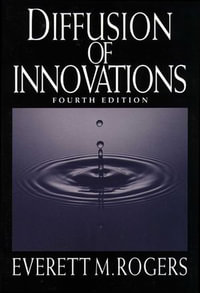
eTEXT
Big Data for Twenty-First-Century Economic Statistics
By: Katharine G. Abraham (Editor), Ron S. Jarmin (Editor), Brian C. Moyer (Editor), Matthew D. Shapiro (Editor)
eText | 11 March 2022
At a Glance
eText
$242.01
or
Instant online reading in your Booktopia eTextbook Library *
Read online on
Desktop
Tablet
Mobile
Not downloadable to your eReader or an app
Why choose an eTextbook?
Instant Access *
Purchase and read your book immediately
Read Aloud
Listen and follow along as Bookshelf reads to you
Study Tools
Built-in study tools like highlights and more
* eTextbooks are not downloadable to your eReader or an app and can be accessed via web browsers only. You must be connected to the internet and have no technical issues with your device or browser that could prevent the eTextbook from operating.
The papers in this volume analyze the deployment of Big Data to solve both existing and novel challenges in economic measurement.
The existing infrastructure for the production of key economic statistics relies heavily on data collected through sample surveys and periodic censuses, together with administrative records generated in connection with tax administration. The increasing difficulty of obtaining survey and census responses threatens the viability of existing data collection approaches. The growing availability of new sources of Big Data—such as scanner data on purchases, credit card transaction records, payroll information, and prices of various goods scraped from the websites of online sellers—has changed the data landscape. These new sources of data hold the promise of allowing the statistical agencies to produce more accurate, more disaggregated, and more timely economic data to meet the needs of policymakers and other data users.
This volume documents progress made toward that goal and the challenges to be overcome to realize the full potential of Big Data in the production of economic statistics. It describes the deployment of Big Data to solve both existing and novel challenges in economic measurement, and it will be of interest to statistical agency staff, academic researchers, and serious users of economic statistics.
About the Editors
Katharine G. Abraham is professor of economics and survey methodology at the University of Maryland and a research associate of the National Bureau of Economic Research.
Ron S. Jarmin is deputy director and chief operating officer of the United States Census Bureau.
Brian C. Moyer is director of the National Center for Health Statistics.
Matthew D. Shapiro is the Lawrence R. Klein Collegiate Professor of Economics and director and research professor of the Survey Research Center, both at the University of Michigan, and a research associate of the National Bureau of Economic Research.
The existing infrastructure for the production of key economic statistics relies heavily on data collected through sample surveys and periodic censuses, together with administrative records generated in connection with tax administration. The increasing difficulty of obtaining survey and census responses threatens the viability of existing data collection approaches. The growing availability of new sources of Big Data—such as scanner data on purchases, credit card transaction records, payroll information, and prices of various goods scraped from the websites of online sellers—has changed the data landscape. These new sources of data hold the promise of allowing the statistical agencies to produce more accurate, more disaggregated, and more timely economic data to meet the needs of policymakers and other data users.
This volume documents progress made toward that goal and the challenges to be overcome to realize the full potential of Big Data in the production of economic statistics. It describes the deployment of Big Data to solve both existing and novel challenges in economic measurement, and it will be of interest to statistical agency staff, academic researchers, and serious users of economic statistics.
About the Editors
Katharine G. Abraham is professor of economics and survey methodology at the University of Maryland and a research associate of the National Bureau of Economic Research.
Ron S. Jarmin is deputy director and chief operating officer of the United States Census Bureau.
Brian C. Moyer is director of the National Center for Health Statistics.
Matthew D. Shapiro is the Lawrence R. Klein Collegiate Professor of Economics and director and research professor of the Survey Research Center, both at the University of Michigan, and a research associate of the National Bureau of Economic Research.
Read online on
Desktop
Tablet
Mobile
ISBN: 9780226801391
ISBN-10: 022680139X
Series: National Bureau of Economic Research Studies in Income and Wealth : Book 79
Published: 11th March 2022
Format: ePUB
Language: English
Publisher: University of Chicago Press
Volume Number: 79























